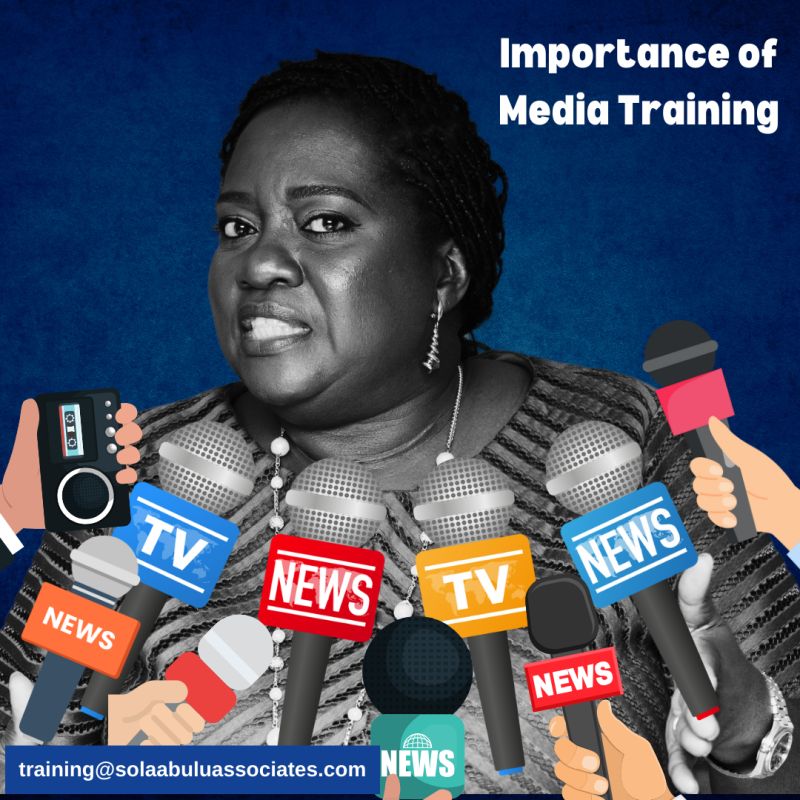Why is Media Training Important?

Having a media protocol is important for every organization. This ensures that media risk is well managed. There should be special clearance and laid-down protocol for those within the organization who are permitted to grant interviews to the media with support from highly skilled media and communications professionals and experts who can hand-hold them through the process.
Engaging with the media is an effective public relations strategy that can contribute positively to the growth and success of a business or organization but the preparedness needs to be prioritized to ensure that media interactions are well managed and the outcomes result in positive mileage for the business and its overall objectives. Media exposure is supposed to be a postive in principle but if managed poorly can be disastrous.
According to Sola Abulu in this article, media training for senior leaders “should include at the barest minimum, various simulations including a LIVE on-camera interview (on tough and controversial issues) with many microphones pushed in their face and the recording played back to SEE what it would be like if it was broadcast verbatim on TV and uploaded on the internet forever.”
Corporate spokespersons who are trained to handle media appearances on behalf of a Brand act as custodians of the business or organization’s reputation and it is important that they are equipped with the knowledge, skills and expertise to be able to play that role effectively in diverse business contexts and environments.
Live interviews for instance come with lot of pressure with it because it requires the ability to be able to think on your feet, stay cool under pressure and remain on script – regardless of how provocative the line of questioning.
This is why a puirposeful decision needs to be taken about if a media interview should be granted, to which media organization, when, how and why.
Understanding Media Risk & Exposure
Being able to estimate the level of risk associated with different types of public events is also important. Sometimes speaking to a national TV crew on the sidelines of an international conference could be as impactful or damaging as being interviewed in the studio on live TV. Depending on what is said, and the slant given to it by the reporter and the way it is amplified on social media and correlated with other developments can create a lot of unwanted interest for the organization. Every high-profile leader should understand that any encounter with the press is not to be treated casually. In today’s world, even social media posts come with significant risks.
**Did you know that there is a difference between media relations and public relations? You will find this article insightful and educating.
Advantages of Media Training For Senior Leaders
- Builds media literacy within the organization
- Helps to protect Brand and Reputation
- Builds crisis resilience
- Enables the brand to mitigate media risk and exposure and leverage on media platforms and reach to achieve desired objectives
- Amplifies the voice of the brand and ensures that its point of view is well articulated and communicated as required
- Enhances public goodwill and creates space and support for the Brand.
………………………………………….
Sola Abulu & Associates is a strategy and communications consulting and training firm committed to enabling businesses, brands and organizations to achieve their objectives through strategic communications, organizational effectiveness and reputation risk management.
